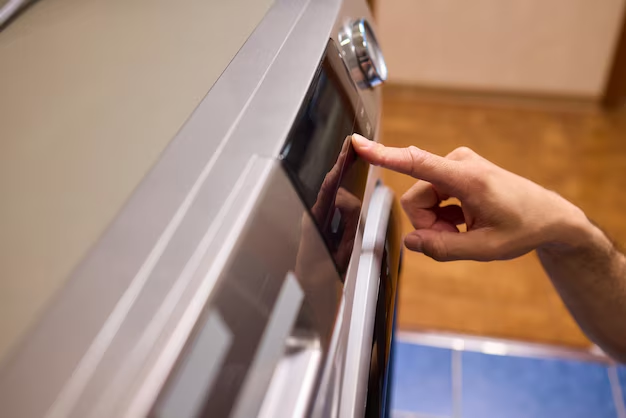Are Refrigerator Water Filters Worth the Investment?
In an era where clean and safe drinking water is more important than ever, many homeowners are pondering the value of installing refrigerator water filters. These devices promise to deliver better-tasting, contaminant-free water directly from your fridge. But are they truly effective? Let’s explore this topic in depth, from understanding their benefits to addressing common concerns and alternatives.
💧 The Role of Refrigerator Water Filters
What Are Refrigerator Water Filters?
Refrigerator water filters are units designed to fit inside your fridge, purifying the water used in your dispenser and ice maker. They work by removing impurities such as chlorine, lead, mercury, and other potentially harmful substances from the water. Typically, these filters use activated carbon technology, which is renowned for its ability to trap and hold contaminants.
Benefits of Using Refrigerator Water Filters
Improved Taste and Odor: One of the most notable benefits is the enhancement of water quality. By removing chlorine and other chemicals, these filters ensure that your water tastes fresher and lacks any unwanted odors.
Healthier Water: Filtering water in your refrigerator can significantly reduce the number of contaminants, thus delivering safer water for drinking and cooking.
Convenience: With a water filter installed, you have a continuous supply of filtered water available within your home. No more need for bottled water or separate filtering systems.
Eco-Friendly Option: Reducing the reliance on plastic bottles is a substantial benefit for the environment, and using a water filter can greatly contribute to this cause.
How They Work
Refrigerator water filters work by channeling water through a complex system of activated carbon and other filtering mediums. Carbon is particularly effective due to its porous nature, allowing it to absorb a wide range of impurities.
📉 Limitations and Considerations
While the benefits are enticing, it's crucial to weigh these against potential limitations.
Filter Maintenance and Replacement
Regular Replacement Needed: Typically, you need to replace filters every six months or after about 200-300 gallons of usage—even sooner if you have a larger household. Neglecting replacement can lead to lower efficiency and even bacteria build-up.
Cost Factor: Over time, the cost of replacing filters can add up. It's important to budget for these recurring purchases.
Installation and Compatibility
Installation: While most filters are easy to install, some models or brands might require professional assistance.
Compatibility Issues: Not all filters are universal. You'll need to ensure that you purchase the correct filter model for your refrigerator.
Performance Limitations
- Certain Contaminants Remain: While effective against many pollutants, some filters might not remove every type of contaminant present in the water, such as fluoride or certain pharmaceutical residues.
🔍 Alternatives to Refrigerator Water Filters
Pitcher Water Filters
Advantages:
- Often have a lower initial cost.
- Simple to use.
Disadvantages:
- Limited water capacity.
- Require frequent filling.
Faucet-Mounted Filters
Advantages:
- Provide filter-on-demand accessibility.
- Generally versatile in installation.
Disadvantages:
- Can reduce water pressure.
- May not filter out as many contaminants as some dedicated systems.
Whole House Water Filters
Advantages:
- Comprehensive solution filtering all water entering your home.
- Eliminates the need for separate filters.
Disadvantages:
- Higher initial investment.
- Professional installation often required.
🧩 Making an Informed Decision
Given the vastness of options available, here's a simplified guide to determine whether refrigerator water filters are right for you:
Assess Water Quality Needs: Start by identifying what's most important for your household—taste, contaminants, convenience, or cost.
Examine Your Budget: Consider both initial and recurring costs associated with filter purchase and replacements.
Evaluate Alternatives: Weigh the advantages and disadvantages of other filtering options to see if they present a better solution for your needs.
📌 Quick Tips for Consumers
Here’s a handy list to help you make the most of your refrigerator water filters:
✨ Change Regularly: Always adhere to the recommended replacement schedule.
💵 Shop Smart: Look for bulk deals or subscribe to auto-ship services for your filters to save money.
🔧 DIY Installation: Many filters come with easy-to-follow instructions to encourage self-installation.
🗓️ Mark Your Calendar: Set reminders or use an app to keep track of when to change filters.
Insightful Closing
Refrigerator water filters certainly provide numerous benefits, from enhancing water taste to reducing environmental impact. However, their efficacy and value largely depend on proper maintenance and understanding their limitations. Educating yourself on these aspects will equip you to make an informed decision that benefits you and the environment, ensuring access to safe and refreshing water daily.
Before making decisions, consider both refrigerator filters and available alternatives to meet your unique household needs effectively. With the right choice, access to quality water is within easy reach.

